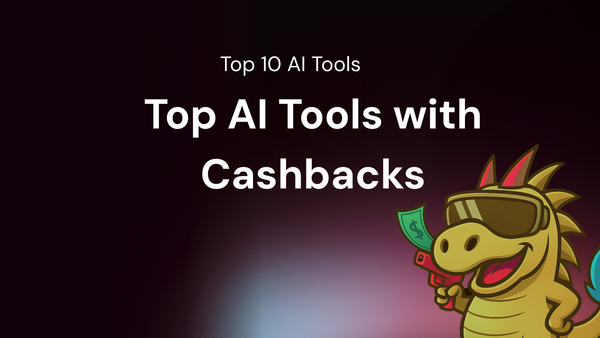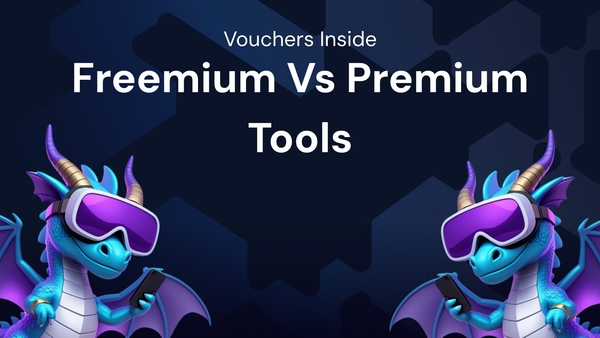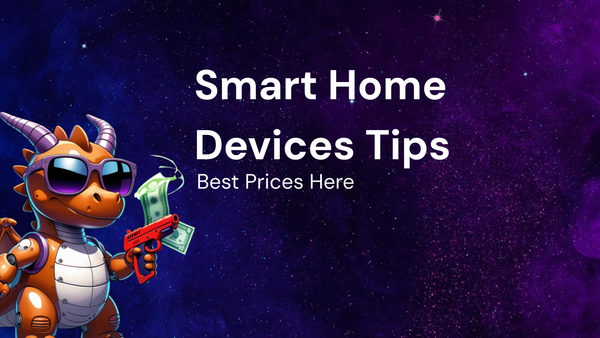Unlock Savings: Best Time To Buy on electric cars with limited offers

Unlock Savings: Best Time To Buy an Electric Car with Limited Offers
The electric vehicle (EV) revolution is here, and more and more drivers are making the switch to a cleaner, more efficient way of getting around. Beyond the environmental benefits, EVs often offer significant savings on fuel and maintenance costs. But what about the initial purchase price? Timing your EV purchase right can unlock even more savings. This article explores the best times to buy an electric car, leveraging limited offers and incentives to maximize your budget. We're not here to sell you anything, just to provide valuable information to help you make an informed decision.
Understanding the EV Market Dynamics
The EV market is dynamic, influenced by factors like technological advancements, government policies, and consumer demand. Understanding these dynamics is crucial to spotting the best opportunities to buy.
- Technological Advancements: Battery technology is constantly improving, leading to longer ranges and lower battery costs. This can influence pricing strategies of manufacturers.
- Government Incentives: Federal, state, and local governments offer various incentives, such as tax credits, rebates, and grants, to encourage EV adoption. These incentives can significantly reduce the overall cost of an EV.
- Manufacturer Incentives: Automakers often offer their own incentives, including discounts, financing deals, and lease offers, to boost sales.
- Supply and Demand: As EV adoption increases, the balance of supply and demand can shift, affecting prices and availability.
- Model Year Changes: Automakers typically release new model year vehicles in the fall. This can lead to discounts on outgoing models as dealerships try to clear inventory.
Why Timing Matters When Buying an EV
Just like buying a traditional car, the timing of your EV purchase can significantly impact the price you pay. Here's why:
- Maximizing Incentives: Government incentives are often time-sensitive and may have limited funding. Waiting or acting too late could mean missing out on substantial savings.
- Taking Advantage of End-of-Year Sales: Dealerships often offer significant discounts at the end of the year to meet sales quotas and clear inventory.
- Capitalizing on Model Year Transitions: New model year releases can create opportunities to purchase outgoing models at a reduced price.
- Leveraging Seasonal Promotions: Some automakers offer special promotions during specific times of the year, such as holidays or during EV awareness events.
Best Times of the Year to Buy an Electric Car
Several times throughout the year present opportunities to find deals on electric vehicles.
1. End of the Year (October - December)
The end of the year is generally considered one of the best times to buy a car, including EVs.
- Dealer Sales Quotas: Dealerships are under pressure to meet annual sales quotas, making them more willing to negotiate prices. They want to clear out inventory to make room for the new model year.
- Manufacturer Incentives: Automakers often offer year-end incentives to boost sales. These incentives can be combined with dealer discounts and government incentives for maximum savings.
- Tax Planning: Buying an EV before the end of the year may allow you to claim a federal tax credit on your next tax return (depending on eligibility and the specific EV model).
Tips for End-of-Year EV Shopping:
- Research Incentives: Check the IRS website and your state's energy office website for available tax credits, rebates, and other incentives.
- Shop Around: Get quotes from multiple dealerships to compare prices and incentives.
- Be Prepared to Negotiate: Dealerships are often more willing to negotiate at the end of the year.
- Consider Outgoing Models: Look for discounts on the previous model year vehicles.
2. End of the Month
Similar to the end of the year, the end of the month can also be a good time to buy. Dealerships are often trying to meet monthly sales targets and may offer better deals to close sales.
Tips for End-of-Month EV Shopping:
- Visit Dealerships in the Last Week of the Month: This is when dealerships are most likely to be motivated to make deals.
- Be Ready to Buy: If you find a good deal, be prepared to make a purchase.
- Focus on the Out-the-Door Price: Make sure you understand the total cost, including taxes, fees, and other charges.
3. When New Models are Released
When a new model of an EV is released, dealerships will want to clear out their inventory of the older model. This creates an opportunity to buy the older model at a discounted price.
Tips for Buying When New Models are Released:
- Stay Informed About Upcoming Model Releases: Follow automotive news and manufacturer announcements to stay updated.
- Be Prepared to Act Quickly: Discounts on older models may be limited and sell out quickly.
- Weigh the Benefits of the New Model: Consider whether the features and improvements of the new model are worth the extra cost.
4. During EV Awareness Events
Some organizations and manufacturers host EV awareness events throughout the year. These events may include special promotions, discounts, and educational opportunities.
Tips for EV Awareness Event Shopping:
- Check for Local EV Events: Search online for EV events in your area.
- Attend the Events: Learn about the latest EV technology and available incentives.
- Look for Special Promotions: Take advantage of any discounts or incentives offered during the event.
5. Off-Peak Seasons
Depending on your region, certain times of the year may be considered off-peak for car sales. This could be during the winter months in colder climates or during the summer months in very hot climates. Dealerships may offer discounts to attract customers during these slower periods.
Tips for Off-Peak Season Shopping:
- Monitor Local Market Trends: Pay attention to car sales trends in your area to identify off-peak periods.
- Visit Dealerships During These Times: You may find less competition and more willing salespeople.
- Be Prepared to Negotiate: Dealerships may be more flexible on pricing during slower periods.
Understanding and Leveraging EV Incentives
EV incentives are a crucial part of unlocking savings. Here's a breakdown:
Federal Tax Credit
The federal government offers a tax credit for the purchase of new electric vehicles. The amount of the credit can vary depending on the battery capacity of the vehicle and is subject to certain income limitations.
- How it Works: The tax credit reduces the amount of income tax you owe to the federal government. You claim the credit when you file your taxes.
- Eligibility: To be eligible for the tax credit, you must meet certain income requirements and the vehicle must meet specific criteria. It's crucial to verify if the specific EV model and your financial situation qualify for the federal tax credit. Check the IRS website for the latest eligibility requirements.
- Key Considerations: The tax credit is non-refundable, meaning you can only receive a credit up to the amount of taxes you owe. It’s essential to understand the current federal guidelines and eligibility requirements, as these can change.
State and Local Incentives
Many state and local governments offer their own incentives for EV purchases, such as rebates, grants, and tax credits.
- Examples of State Incentives:
- California: Offers rebates through the Clean Vehicle Rebate Project (CVRP).
- Colorado: Offers a state income tax credit for EV purchases.
- Massachusetts: Offers rebates through the MOR-EV program.
- How to Find State and Local Incentives: Check your state's energy office website or the U.S. Department of Energy's Alternative Fuels Data Center for a comprehensive list of incentives.
Utility Company Rebates
Some utility companies offer rebates for purchasing or leasing electric vehicles. These rebates are often offered to encourage customers to use electricity for transportation.
- How to Find Utility Company Rebates: Check with your local utility company to see if they offer any EV rebates.
- Key Considerations: Utility rebates are often limited to customers who receive electricity from that specific company.
Manufacturer Incentives
Automakers often offer their own incentives to promote EV sales. These incentives can include discounts, financing deals, and lease offers.
- Types of Manufacturer Incentives:
- Cash Rebates: Direct discounts on the purchase price of the vehicle.
- Low-Interest Financing: Special financing rates for EV purchases.
- Lease Deals: Attractive lease terms for EV models.
- How to Find Manufacturer Incentives: Check the manufacturer's website or visit a dealership to learn about current incentives.
Tips for Maximizing EV Incentives:
- Research All Available Incentives: Don't just focus on the federal tax credit. Explore state, local, and utility incentives as well.
- Understand Eligibility Requirements: Make sure you meet the eligibility requirements for each incentive.
- Combine Incentives: In some cases, you may be able to combine multiple incentives for even greater savings.
- Act Quickly: Some incentives are time-sensitive and may have limited funding.
Strategies for Negotiating the Best EV Price
Even with incentives, negotiation is key to getting the best possible price on your electric car.
Research the Market Value
Before you start negotiating, research the market value of the EV you're interested in.
- Use Online Resources: Websites like Kelley Blue Book, Edmunds, and TrueCar can provide market values for new and used EVs.
- Compare Prices at Different Dealerships: Get quotes from multiple dealerships to see how their prices compare.
- Consider Used EVs: Used EVs can be a great value, especially if they still qualify for any remaining incentives.
Be Prepared to Walk Away
The most powerful negotiating tool is the ability to walk away from a deal. If you're not happy with the price, don't be afraid to leave the dealership.
- Set a Budget: Determine how much you're willing to spend on an EV and stick to your budget.
- Don't Get Emotionally Attached: Don't fall in love with a particular car before you negotiate the price.
- Be Prepared to Shop Around: If one dealership won't meet your price, move on to another.
Focus on the Out-the-Door Price
When negotiating, focus on the out-the-door price, which includes all taxes, fees, and other charges.
- Ask for a Detailed Breakdown: Get a written breakdown of all the costs associated with the purchase.
- Negotiate Each Item Separately: Don't be afraid to question any fees or charges that seem unreasonable.
- Compare Out-the-Door Prices: Compare the out-the-door prices from different dealerships to get the best deal.
Use Incentives as Leverage
Use available incentives as leverage during negotiations.
- Mention Incentives Early: Let the dealership know that you're aware of the available incentives.
- Factor Incentives into Your Offer: Base your offer on the price of the vehicle after incentives are applied.
- Be Prepared to Provide Documentation: Have documentation ready to prove your eligibility for incentives.
Don't Be Afraid to Negotiate Online
Many dealerships now offer online sales options. Negotiating online can be a convenient way to get the best price without having to visit multiple dealerships in person.
- Get Quotes Online: Request quotes from multiple dealerships through their websites.
- Compare Offers: Compare the offers and negotiate online.
- Visit the Dealership to Finalize the Deal: Once you've agreed on a price, visit the dealership to finalize the paperwork and take delivery of the vehicle.
Factors to Consider Beyond Price
While price is important, it's not the only factor to consider when buying an electric car.
Range and Charging
Consider the range of the EV and the availability of charging stations in your area.
- Assess Your Driving Needs: Determine how far you typically drive each day and choose an EV with sufficient range.
- Consider Charging Infrastructure: Research the availability of public charging stations in your area.
- Think About Home Charging: Consider installing a Level 2 charger at home for faster charging.
Features and Technology
Consider the features and technology offered by the EV.
- Prioritize Important Features: Identify the features that are most important to you, such as safety features, infotainment systems, and driver-assistance technologies.
- Test Drive the Vehicle: Take the EV for a test drive to experience the features firsthand.
- Read Reviews: Read reviews from other EV owners to get their feedback on the features and technology.
Maintenance and Reliability
Consider the maintenance requirements and reliability of the EV.
- EVs Generally Require Less Maintenance: Electric vehicles typically require less maintenance than gasoline-powered cars.
- Research Reliability Ratings: Check reliability ratings from reputable sources like Consumer Reports.
- Consider Warranty Coverage: Understand the warranty coverage offered by the manufacturer.
Long-Term Cost of Ownership
Consider the long-term cost of ownership, including fuel costs, maintenance costs, and insurance costs.
- EVs Can Save Money on Fuel: Electric vehicles can save you money on fuel costs, especially if you charge at home using off-peak electricity rates.
- EVs May Have Lower Maintenance Costs: Electric vehicles typically have lower maintenance costs than gasoline-powered cars.
- Insurance Costs Can Vary: Insurance costs for EVs can vary depending on the make and model.
Resources for Finding EV Deals and Incentives
- U.S. Department of Energy's Alternative Fuels Data Center: A comprehensive resource for information on EV incentives and alternative fuels.
- IRS Website: Provides information on the federal tax credit for electric vehicles.
- State Energy Office Websites: Websites for state energy offices often list available state incentives for EVs.
- Utility Company Websites: Check with your local utility company to see if they offer any EV rebates.
- Automaker Websites: Websites for automakers often list available manufacturer incentives for EVs.
- Online Car Shopping Websites: Websites like Kelley Blue Book, Edmunds, and TrueCar can help you find EV deals and compare prices.
Conclusion: Timing is Key to EV Savings
Buying an electric car is a significant investment. By understanding the EV market dynamics, timing your purchase strategically, and leveraging available incentives, you can unlock significant savings. Remember to research thoroughly, negotiate effectively, and consider all factors beyond price to make an informed decision that aligns with your needs and budget. The electric vehicle revolution is happening now, and with the right approach, you can be a part of it while saving money.




